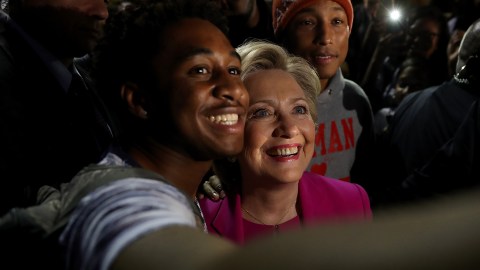Do You Have the Right to Take a Ballot Selfie? Check Your State.

There are some issues which only come around every four years. Election day is near and photos of people casting their ballots have already started to flow onto social media. But, depending on what state you live in, that voting selfie might be illegal.
Justin Timberlake took a selfie in a voting booth in Memphis, Tennessee in an attempt to get people excited about the voting process. Instead, his gesture reignited a recent debate surrounding photographing oneself voting.
For Timberlake, technically, Tennessee law forbids voters from using phones “for telephone conversations, recording, or taking photographs or videos while inside the polling place.” However, voting selfies of mail-in ballots are a legal gray area in this state.
As for the other 49 states… some have some concrete language describing the use of cellphones, photography, and/or the sharing of voter choices.
Illegal:
Alabama, Alaska, Colorado, Florida, Georgia, Illinois, Kansas, Massachusetts, Mississippi, Nevada, New Jersey, New Mexico, New York, Nevada, North Carolina, South Carolina, South Dakota, Wisconsin.
Legal:
Connecticut, District of Columbia, Hawaii, Idaho, Indiana, Kentucky, Louisiana, Maine, Michigan, Minnesota, Montana, Nebraska, New Hampshire, North Dakota, Oregon, Rhode Island, Utah, Vermont, Virginia, Washington, Wyoming.
Unclear:
Arizona, Arkansas, California, Delaware, Iowa, Maryland, Missouri, Ohio, Oklahoma, Pennsylvania, Texas, West Virginia, Tennessee.
Why it’s illegal in some states
Some have argued ballot selfies should be protected under free speech. However, for some states, the argument isn’t about speech, but protecting the process and the privacy of the people participating. The reason these laws were enacted long ago was to prevent vote-buying. A photograph is proof.
But many see vote-buying as a thing of the past, and that any vote-buying would be overshadowed by the enormously encouraging effect vote-sharing can have on a community. Snapchat argued, in a recent court case attempting to overturn New Hampshire’s ban on ballot selfies, “It is precisely because a ballot selfie proves how a voter has exercised her franchise that it is an unmatched expression of civic engagement. There is, simply put, no substitute for this speech.”
There’s evidence to suggest sharing whether or not you voted can affect turnout. A recent Facebook experiment suggests how sharing the simple fact that “I voted” can influence others to vote. “Our study shows that the truth is somewhere in between: online networks are powerful… but it is those real-world ties that we have always had that are making a difference,” says James Fowler, a political scientist at the University of California, San Diego.





